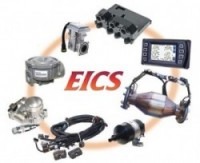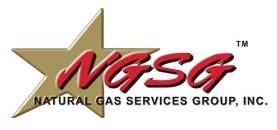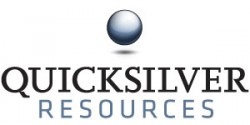
TULSA, OK, February 19, 2013- FW Murphy continues to find success with its Engine Integrated Control System (EICS®). Designed and tested for specific spark-ignited, natural-gas-fueled engines, EICS integrates key components for engine optimization including ignition systems, air/fuel control, speed governing, interface and diagnostics, sensors and, harnessing into a single Engine Control Module (ECM) making it a complete package. By combining these products, the EICS saves money and man-hours associated with the installation and set-up of separate components.
“Historically, operators have purchased and installed each component separately, dedicating a huge amount of resources to calibrate each device to work with their specific engine” said Rick Harris, Director of Marketing, Natural Gas Compression (NGC). “With EICS, all the components have been integrated into one package and calibrated specifically for your engine, ensuring your engine will run at optimum performance.”
The EICS was designed and tested to work with specific engine models. FW Murphy conducted extensive dynamometer testing to ensure each specific engine will run at optimum performance across all loads and with varying BTU without the need for manual field adjustments. By completing this testing upfront, operators can be certain their site will pass required testing without the need for pretesting to get dialed in or the need to make adjustments later.
“In the field it can be difficult for operators to identify which component triggered the initial alarm,” said Harris. “The benefit of the EICS is that all the components are integrated into one box which sees everything, and can identify the root cause of the malfunction.”
For operators facing emissions regulations, the EICS system offers an optional emissions package which can be added to EICS systems after the purchase.
The success of EICS was showcased when Exterran, a Houston-based global market leader in full service natural gas compression, was presented with a significant challenge. The Environmental Protection Agency (EPA) proposed a regulation that would require about 8,500 units in the company’s North American fleet of natural-gas-engine-powered compressors to include emissions-control equipment. After extensive research into potential retrofit solutions, Exterran selected (EICS) to meet emissions-compliance and performance-optimization needs for impacted compression equipment.
“Due to the material impact of that proposed EPA regulation — and because, in our opinion, other currently available equipment was insufficient for keeping equipment in continuous compliance under changing operating conditions — we turned to FW Murphy,” says Mike Wasson, Director of North American Fleet Services at Exterran. “We heard about how they had been doing this successfully on similar engines and were interested to see if their EICS product could provide the same long-term and credible solution for the possible EPA regulation that we were looking at.”
While emissions compliance was a driving force behind the decision to implement the EICS for Exterran, the potential for increased engine efficiency and optimized equipment performance was equally influential. Since piloting the first EICS-equipped compressor in September 2010, Exterran and its customers have realized emissions-compliance and performance benefits from the FW Murphy product — and the packager, expects additional advantages as the equipment accumulates run time.
“We’ve seen a lot of things in our EICS-equipped engine packages to get us excited about the future in terms of engine management and emissions controls,” says Ray Purtzer, Exterran Vice President of North American Fleet Services.
Besides increased fuel efficiency, Exterran anticipates that the EICS features will deliver improved uptime when facing load swings and changes in natural gas well flow conditions that would typically shut down an engine. “I see us being able to address a portion of the unscheduled callouts related to low suction pressure, which equates to more uptime for our customers,” says James Harrison, Technical Field Services Manager for Exterran.
By combining key components into one package, the EICS saved Exterran cost and labor associated with the installation and calibration of separate products. “It’s probably a 15 to 20 percent savings in labor hours versus if we had to install each component individually and the engine control systems weren’t all integrated,” says Harrison.
When developing the EICS, FW Murphy leveraged its existing ignition system, which features a capacitive discharge ignition system and uses Smart Coil technology to measure and display kilovolt (kV) readings required to fire the spark plug in each cylinder. By measuring the kV readings, the EICS provides comprehensive engine diagnostics and prognostics.
When operational issues arise, the EICS simplifies and streamlines troubleshooting by monitoring all integrated system components. If an out-of-limit event occurs, the EICS can pinpoint the malfunction. The advanced diagnostics eliminate the need for operators to test and troubleshoot each component separately, resulting in reduced downtime and service costs.
“The EICS makes the engine run better, and when the engine runs better, we have less downtime and less repair costs involved,” Harrison says. “The EICS diagnostics allow us to quickly troubleshoot issues, thus saving us downtime in the field, keeping the compression services online for our customer. We think there’s a lot of opportunity for better performance. I also think we could see a lengthened life cycle between engine overhauls, which would equate to bottom-line dollars.”
The FW Murphy EICS product line will be showcased at the EICS at the East Texas Oil Expo, March 6-7 in Longview, Texas. The East Texas Oil Expo is the largest expo of its kind in Arkansas, Texas and Louisiana. The EICS will also be showcased at the Gas Compressor Association Annual Expo & Conference, April 14-17, 2013, in Galveston, Texas. For more information about the FW Murphy EICS product line, please contact us at 918-317-4100 or visit our web site at http://www.fwmurphy.com/eics.


Recent Comments